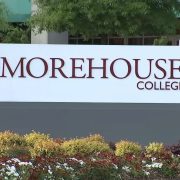Talk to Your High School Students about Completing College
. . . Not Only about Getting In
What is the purpose of attending high school?
There are many possible answers to that question. People go to high school to learn, to define their interests and career paths, to take part in sports and extracurricular activities . . . and even to spend four years having fun, making friends, and building memories.
Yes, students attend high school for those reasons. But in recent years, one reason for attending high school has begun to outweigh all the others . . .
The purpose of attending high school is to get into college
That reason for going to high school drives students to take part in sports and extracurriculars, to take AP classes, to spend hours being tutored to take standardized tests, to go to private college admission counselors, to labor over college essays, and to engage in other activities that will help them “get in” and get acceptance letters from the best colleges and universities they can.
Is It Time to Shift the Focus of Talking about College?
It could be time to start talking less with students about getting admitted to college and more about completing college. Because statistics show that college completion rates are falling.
“College Completion Rates Are Up, But the Numbers Will Still Surprise You,” an article that Elissa Nadworthy wrote for NPR on March 13, 2019, reports some sobering statistics about how many students in America are earning degrees after six years of college . . .
- Only 58% percent of the students who started college in 2012 have completed degrees today. (Source: The National Student Clearinghouse Research Center)
- Only 37.3% of students who enter four-year for-profit colleges and universities earn a degree after six years. And students from underprivileged and “minority” backgrounds are the most likely to enroll in institutions like those.
- In contrast, 76.1% of students who enter private institutions have earned degrees after six years, and 65.7% of students who enter public four-year institutions.
What Happens when Students Never Finish Degrees?
Increasingly, students are able to find employment, even without obtaining a degree, often in technical fields. Yet even today, failing to finish a degree can have negative consequences. One is taking student loans and incurring a large load of student debt – then being forced to take jobs that pay less because a college degree is lacking.
Progress is happening. In her article, Ms. Nadworthy notes that the current six-year completion rate after six years of college, 58.3 percent, is actually 1.5 percentage points higher than it was last year.
But it could be time for parents, teachers, guidance counselors and other individuals who influence high school students to start saying, “It is important that you finish college” and not only, “You have to work hard to get in.”
Getting out, people are beginning to recognize, is just as important as getting in.
To Learn More about How Students Plan
Participate in the National Career & College Pathway Study to gain new insights about making educational decisions that align with your interests, passions, and aptitudes. Students who complete the study will receive information on college and career opportunities that match their interests.
Related Posts
How Are Gen Z High School Students Thinking About Careers Today?
Career Counseling Advice: Tell Your Students the Importance of Loyalty to Employers
The Importance of Career Knowledge
What Influences Student Career Choices?
New Research Findings: What American Colleges Are Doing to Attract Students
Tuition-Free Colleges Really Do Exist
How Successful Are Community College Students at Completing 4-Year College Degree










Leave a Reply
Want to join the discussion?Feel free to contribute!